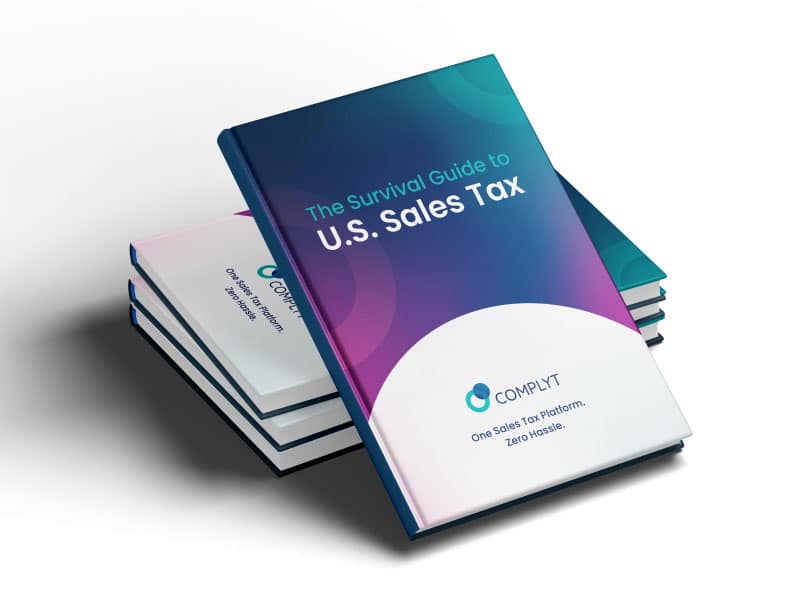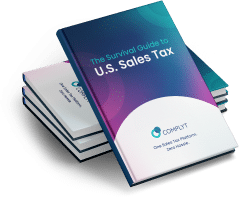What is the sales tax rate in Virginia?
The state of Virginia imposes a statewide sales tax of 5.3%. In the majority of counties, an additional 1% local tax is added for a total tax rate of 6.3%.
However, in Central Virginia, Northern Virginia, and Hampton Roads, the rate is slightly lower, with a total sales tax rate of 6%. Conversely, in James City County, Williamsburg, and York County, the rate is slightly higher at a total of 7%.
It’s important to note that the sales tax rates vary by city and county in Virginia. To determine the specific sales tax rate for a particular location, you can visit the Virginia Tax website.
Sales Tax Virginia: When should your business collect Sales Tax in Virginia?
In Virginia, your business is required to collect sales tax if you have a nexus. A nexus, meaning a connection, is established if your business has a physical presence or meets specific economic criteria within the state.
Virginia Physical Sales Tax Nexus
If your business has a physical presence, also known as a physical nexus, in Virginia, you’re required to collect and remit sales tax. In days past, a physical presence was just your brick-and-mortar building but today it can be a little bit more complex.
Here is a list of possible events that can create a physical nexus in Virginia.
Sales Tax Physical Nexus checklist for Virginia
A physical sales tax nexus is created in Virginia when your business:
- Has an office, distribution, sales, or sample room location, warehouse, storage place, or other place of business.
- Has a representative, agent, salesperson, canvasser, or solicitor operating in the state on either a temporary or permanent basis.
- Has property, including inventory stored in a warehouse, in the state.
- Acts as a third-party affiliate partner for a business in the state.
Virginia Economic Nexus: Revenue, Thresholds and Transactions
In Virginia, an economic nexus is formed if your gross revenue from sales into Virginia exceeds $100,000, or if the business makes more than 200 sales transactions within the state in a single calendar year.
Services taxable in Virginia: Which services are subject to sales tax?
While many services in Virginia are exempt from sales tax, there are a few that are taxable.
Taxable services in Virginia include:
- Public Service Corporation Services
- Telecommunication services
- Tangible personal property repair/maintenance
- Lodging services
Virginia Sales Tax on Products: How to Calculate What Your Business Should be Charging
In Virginia, sales tax should be calculated by applying the combined state and local sales tax rate to the total sales price. It is crucial to note that tax rates apply based on the location of the buyer in a transaction.
How much is Virginia clothing tax?
The sales tax on clothing is 5.3% in Virginia, plus additional local municipality tax rates. This means that the total sales tax charged can be as high as 7%.
A number of clothing tax exemptions do exist for the sale of certain protective clothing. So it’s important to confirm the taxability of these products before accidentally charging sales tax on exempt items.
Virginia Online Sales Tax: Are SaaS and Digital Services Taxable?
Should digital and software as a service (SaaS) providers charge sales tax in Virginia? The general rule is that tangible goods are taxable while digital goods and services are not. However, exceptions do exist, so businesses should stay informed about changes in sales tax law that might affect them.
SaaS Sales Tax Virginia: Should my Business Be Charging Sales Tax for SaaS?
SaaS products and digital services are typically not subject to sales tax in Virginia, but there are exceptions. If you have software that others use, and you’re unsure if you should pay tax for people of Virginia using it, contact a tax authority that could help you work out if you need to pay taxes.
How can a business get a sales tax permit in Virginia?
Businesses in Virginia can apply for a sales tax permit by registering with the Virginia Tax Online Services for Businesses. There is no fee to apply.
Collecting Sales Tax in Virginia as a Business
Now that you understand your nexus, know your sales tax obligations, and have applied for your tax permit, it’s time to start collecting and remitting sales taxes.
Virginia Tax Return Due Dates Explained
Virginia sales tax returns are generally due on the 20th of the month following the reporting period. However, businesses are assigned filing frequencies which can be monthly, quarterly, or annually. Quarterly filing periods end March 31, June 30, Sept. 30 and Dec. 31.
You have to file a return for each period, even if you don’t owe any tax.
What is the required frequency for sales tax returns in Virginia?
In Virginia, the filing frequency for sales tax returns is usually based on the volume of sales tax collected by the business and can be either monthly, quarterly, or annually.

